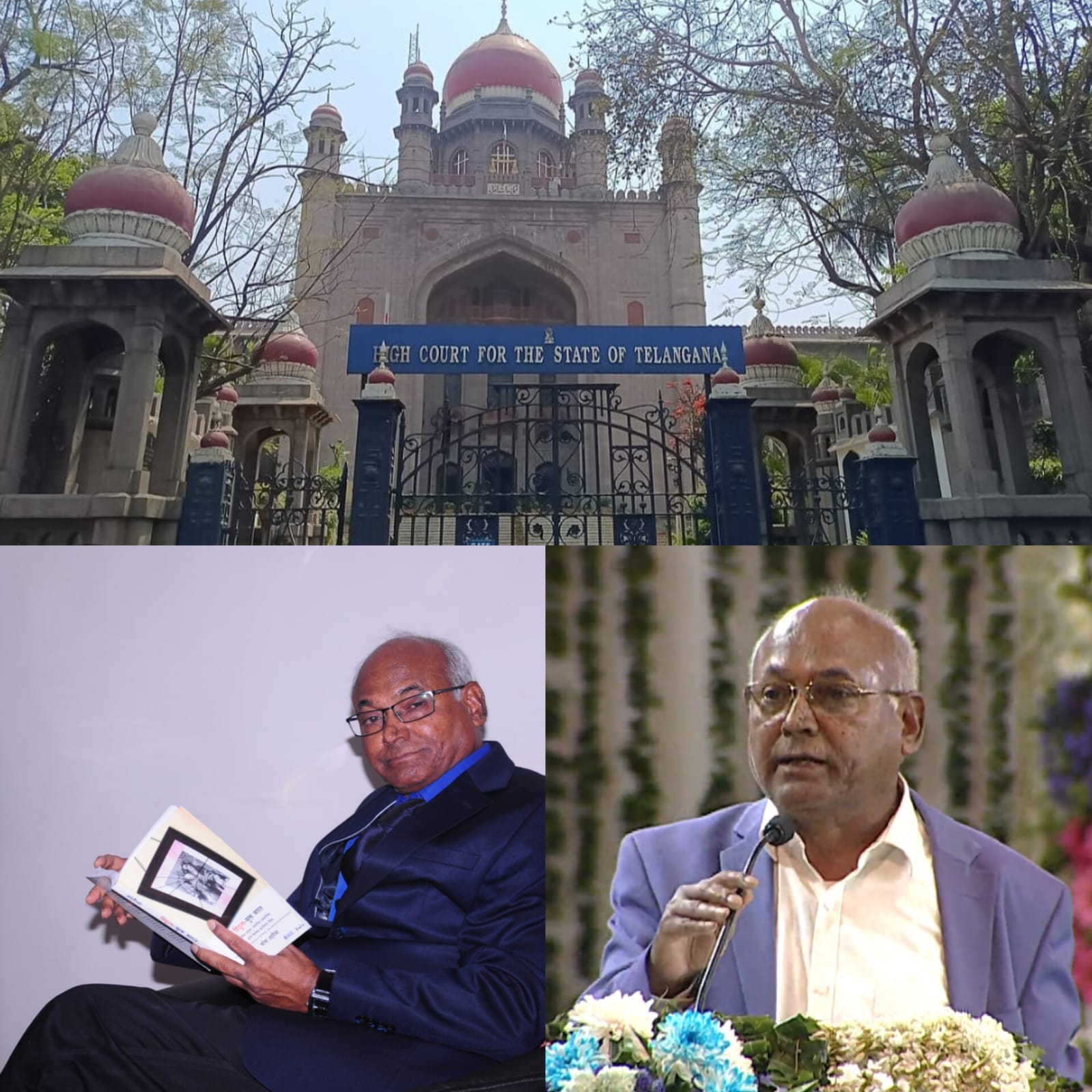
Telangana High Court Quashes Criminal Cases Against Kancha Ilaiah Shepherd; Author Expresses Gratitude for Judicial Protection
Hyderabad, December 13,2024: In a significant legal victory for freedom of expression, the Telangana High Court today quashed all criminal cases filed against Professor Kancha Ilaiah Shepherd, the renowned author of Social Smugglers Komatollu. The criminal cases, which included an SC/ST atrocity case, had been filed in 2017 in various courts, including those in Korutla, Karimnagar, Malkajgiri, and the associated police stations.
The High Court’s ruling comes after a long-standing legal battle, which also included the dismissal of an earlier case by the Supreme Court in 2017. The apex court had rejected the demand to ban Social Smugglers Komatollu and had affirmed the author’s right to publish the book, recognizing it as an exercise in freedom of speech and research.

Professor Kancha Ilaiah Shepherd’s Gratitude for Judicial Protection
In his statement following the High Court’s decision, Professor Kancha Ilaiah Shepherd expressed his heartfelt gratitude to the Telangana High Court for upholding his constitutional rights and quashing the baseless criminal charges. He specifically thanked Senior Advocate Appari Satya Prasad and Advocate Srikanth Chintala, along with their office assistants, for their relentless legal efforts in defending his case.
“I sincerely appreciate the Telangana High Court for protecting my fundamental rights to free speech and research. This ruling strengthens our democracy and safeguards the voice of intellectuals and writers,” said Ilaiah.
The author further acknowledged the importance of the previous Supreme Court judgment, which had earlier upheld his book’s right to be published. He emphasized that the High Court’s decision today, alongside the earlier Supreme Court ruling, provides a powerful testament to the protection of freedom of expression in India.

A Strong Advocate for Dalit and Backward Classes
Kancha Ilaiah Shepherd, a prominent academic and social activist, is best known for his work advocating for the rights of Dalits and other marginalized communities in India. As a professor at Osmania University, Ilaiah’s academic work often focuses on social justice, the caste system, and the intersection of religion and politics in India.
Ilaiah’s book Social Smugglers Komatollu explores the exploitation and oppression of lower-caste communities by upper-caste groups and critiques the social and economic structures that perpetuate inequality. The book sparked widespread controversy, especially among the Arya Vaishya community, leading to several legal cases and attempts to ban the book.
However, despite the backlash, Ilaiah has remained resolute in his views, often speaking out against caste-based discrimination and inequality in Indian society. His advocacy for Dalit rights has earned him both admiration and criticism, and his writings continue to provoke thought and discussion about India’s social fabric.

Strengthening Faith in the Indian Judicial System
Professor Ilaiah expressed his belief that the court’s rulings, particularly the rejection of the ban on his book by the Supreme Court and the High Court’s quashing of the cases, have reinforced the faith of citizens in India’s judicial system. “These judgments reflect the strength and integrity of the Indian judiciary in protecting the rights of individuals against all odds,” Ilaiah added. “The legal system’s protection of freedom of speech and intellectual inquiry has been a great source of inspiration.”
The author concluded by stating that the legal battle and its successful resolution highlight the importance of safeguarding constitutional rights in the face of attempts to stifle free thought and expression. He emphasized that the decision would encourage more writers, intellectuals, and activists to continue their work, knowing that their voices are protected by law.
Kancha Ilaiah Shepherd’s legal victory serves as a powerful reminder of the critical role of the judiciary in upholding democratic values and protecting individual freedoms in India. It also marks a significant moment in the ongoing conversation about caste, social justice, and freedom of expression in contemporary Indian society.


